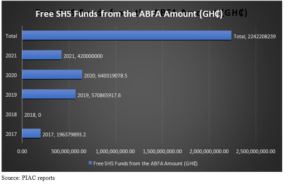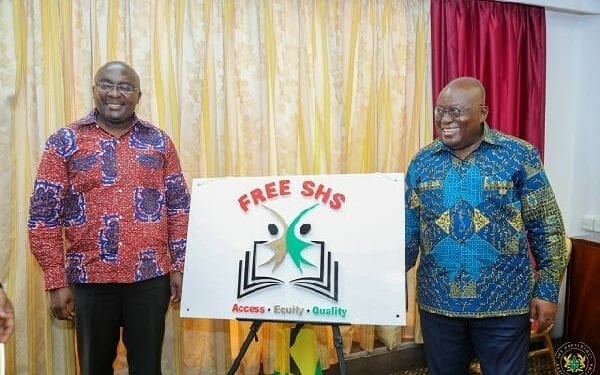As energy transition threatens oil production across the globe, government has been urged to reconsider diversifying the funding of its flagship education programme – the Free Senior High School (FSHS) policy – introduced in 2017.
This is because the energy transition process – a global shift from fossil fuel-based sources of energy – is projected to adversely impact oil revenues, which remains the major funding source of the programme.
Chairman of the Civil Society Platform on Oil and Gas (CSPOG), Dr. Steve Manteaw, explained that oil revenues are volatile, and therefore hinging the financing of such an initiative on it is perilous.
The portion of oil money in the national budget, the Annual Budget Funding Amount (ABFA), has been a critical financing source for the country’s budget – receiving 40 percent of the country’s petroleum revenues for the past 10 years.
Physical Infrastructure and service delivery in education, one of the 12 priority areas under the ABFA, has so far received 21.74 percent of the ABFA allocations, with the FSHS policy accounting for a chunk of education spending.
For instance, disbursements to education from 2017 to 2021, according to the Public Interest and Accountability Committee (PIAC) – a public watchdog over use and management of petroleum revenues – amounted to some GH¢2.24billion.

However, the country has developed a National Energy Transition Framework aimed at decarbonising the energy sector, with a focus on prioritising and promoting cleaner energy sources including gas, nuclear power, solar and wind energy, among others.
Under the framework, Ghana aims to achieve net zero by 2070 as revenues from the upstream petroleum sector are expected to decline.
The global transition’s impact on fossil fuel assets is generally expected to negatively affect the industry through stranding. In the petroleum sector, assets at risk include fossil fuel reserves and capital goods used for the extraction, processing and transportation of fuel.
Already, the country in recent times has seen a dip in its crude oil production despite making some significant gains in revenue due to price increases of the commodity on the world market.
Given the current developments, Dr. Manteaw said funding for the FSHS will become dire because of implementing the energy transition framework.
He however suggested that funding sources of the FSHS programme should be varied, for instance to include gold, critical minerals and cocoa, among others.
Furthermore, he asserted that efforts could be made to centralise all existing scholarship programmes by extractive companies to support financing for the flagship education programme.
Meanwhile, Dr. Manteaw – who is also Co-chair of the Ghana Extractive Industry Transparency Initiative (GHEITI), spoke at a workshop in Koforidua and advocated a moderate or pragmatic approach to the energy transition goal.
The training programme was organised by the Natural Resource Governance Institute
(NRGI), focusing the on ‘Impact of Energy Transition on Domestic Resources Mobilisation in Ghana.’
Explaining the rationale behind the workshop, Senior Economic Analyst of NRGI, Dr. Alex Ampaabeng, said media and the CSOs represent a significant segment of Ghanaian society and are key stakeholders whose views and input are vital in the ET process.
The focus of Ghana’s energy transition framework suggests that in the next half-century, the government will mainstream energy transition in all critical areas such as investment and expenditure decisions and the broader fiscal policies to meet local and global targets.
Against this background, he said, a capacity-building programme to equip CSOs and media on the subject is a timely intervention.
“Again, the need to deepen accountability is very important. As government embarks on key reforms to generate more revenue to finance the transition, accountability will be pivotal going forward to ensure that revenue collected, specially earmarked funds, are channelled to provide the needed investments to meet the set targets,” he added.










